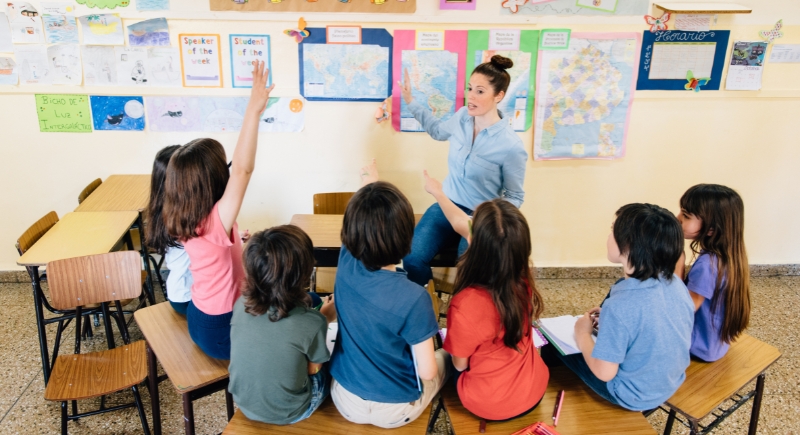9 “Harsh Truths” Teachers Wish Parents Knew About Their Kids
Teachers spend more time with your child each week than most adults in their lives. That means they see habits, behaviors, and patterns that aren’t always obvious at home. Still, many parents tend to push back when those observations are shared.
But brushing off feedback doesn’t help anyone, especially the student. Keep in mind that these aren’t criticisms, but hard-earned truths that come up again and again in classrooms across the country. Here are 15 of them.
Your Child Is Not Always the Victim

Credit: pixabay
When teachers reach out about conflicts, various guardians assume their child was wronged. But the adults usually don’t get involved unless they’ve observed repeat behavior. Sometimes a student instigates the very issue being reported. Support means ensuring your child takes ownership, not dismissing everything they say or do as innocent.
Failure Builds Skills That Can’t Be Taught Directly

Credit: Getty Images
If your child forgets homework, talks back, or cheats, let them face the consequence instead of stepping in to fix it. It may feel harsh in the moment, but this is how they learn accountability. The right thing to do in such a situation would be to support by asking what happened and discussing how to handle it next time.
Rules Apply to Every Student in the Room

Credit: Getty Images
Some parents email weekly and ask for adjustments that others don’t receive. They request special seating, extra chances, or time extensions because their child finds something unfair. But a functional classroom depends on shared expectations. Students grow when they adapt to structure, not when they’re given outs for every discomfort.
A Boring Lesson Can Still Be a Good One

Credit: Getty Images
Education isn’t always engaging, and it’s not supposed to be. Learning how to pay attention during dry material builds discipline. Reading comprehension, vocabulary review, and math drills don’t feel exciting, but they’re necessary. Parents who expect their child to stay interested at all times set the wrong standard.
Teachers Don’t Benefit from Calling You

Credit: Getty Images
Every time a teacher sends an email or makes a phone call, it costs them time and leads to difficult conversations. They don’t get bonuses or time off for reporting behavior issues. So, try not to accuse the experts of exaggerating or targeting your child. Instead, make an effort to understand how much educators already have on their plates.
Heavy Screen Use Changes How Kids Think

Credit: Getty Images
Multiple studies have shown that excessive screen time affects attention, emotional regulation, and communication in children. Many kids now struggle to follow directions or stay focused without stimulation. Teachers spend increasing time assisting students navigate frustrations that would have once been resolved quickly.
Trying To Be The “Cool Parent” Doesn’t Help

Credit: Getty Images
You might think that leaving your child to handle everything alone is wise, but it causes confusion and poor judgment. Teenagers may look independent, but their decision-making skills are still developing. They need structure as opposed to freedom. Backing down at the first sign of resistance teaches them that rules bend under pressure.
Basic Tasks Are Being Taught Too Late

Credit: Canva
Teach your child basic tasks like tying shoes, packing a bag, and managing their belongings before they start school—otherwise, teachers take up valuable class time doing it for them. These aren’t academic skills, but they impact the learning environment. Young ones who rely on adults for everything fall behind in independence and confidence.
Absences For Travel Set Students Back

Credit: Getty Images
Families who pull students out for vacations during the school year often say, “We’ll catch up later.” But school doesn’t pause for individual schedules. Class discussions, group activities, and daily practice build on each other. Even missing a week creates learning gaps, and gradually, your child misses context that can’t easily be repeated.
Home Routines Have More Impact Than Parents Think

Credit: Getty Images
Set regular routines at home—mealtimes, bedtimes, and screen limits—so your child can adjust to school expectations. Without them, students arrive unfocused, tired, or emotionally off-balance. Educators notice right away. And while they do what they can, they can’t make up for chaotic mornings or inconsistent schedules.
Negative Talk About Teachers Damages the Relationship

Credit: Getty Images
It is damaging when children hear their parents criticize a teacher, especially at home or in front of peers. That kind of talk changes how they view authority—and not just at school. Trust in the teacher drops, behavior worsens, and the classroom dynamic suffers. In case you have concerns, make sure to handle them privately.
Teachers Have Deep Experience with Child Behavior

Credit: Getty Images
Most educators have spent years studying child development and managing group dynamics. They’ve worked with hundreds of students and understand what’s typical at each stage. When a teacher brings up a concern, it’s based on repeated actions, not emotion or judgment. For this reason, you should keep an open mind and hear them out.
Chronic Tardiness Disrupts the Schedule

Credit: Canva
Get your child to school and pick them up on time—consistently. When parents are late, it doesn’t just inconvenience staff. It leaves kids feeling anxious and forgotten. Professionals often miss their own breaks or stay after hours to wait with students. Occasional delays happen, but when it becomes a habit, it portrays a lack of respect for others’ time.
Kids Model Conflict Behavior They See at Home

Credit: Canva
Studies in child psychology consistently show that children learn how to manage conflict by observing adults. If they hear parents praise aggression or encourage retaliation, they do the same thing elsewhere. Some students hit or threaten others, then say they were just “standing up for themselves.”
Early Testing Opens Doors

Credit: Canva
There are proven advantages to early testing when a child shows signs of a learning difficulty. Professionals recognize patterns—missed instructions, slow processing, or reading challenges—and raise concerns because they want to help. An evaluation goes a long way in unlocking resources like targeted instruction or accommodations that ease daily frustrations.